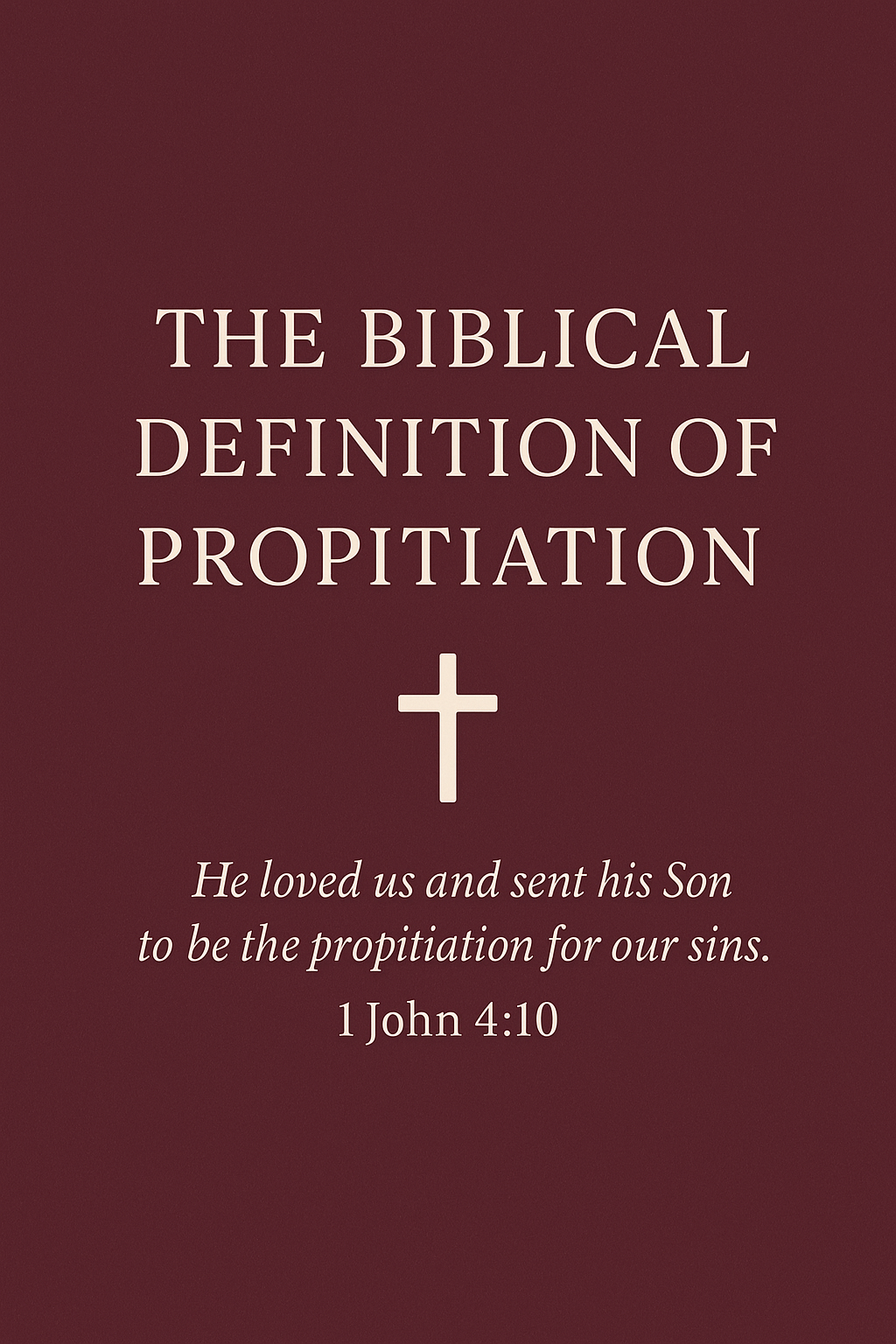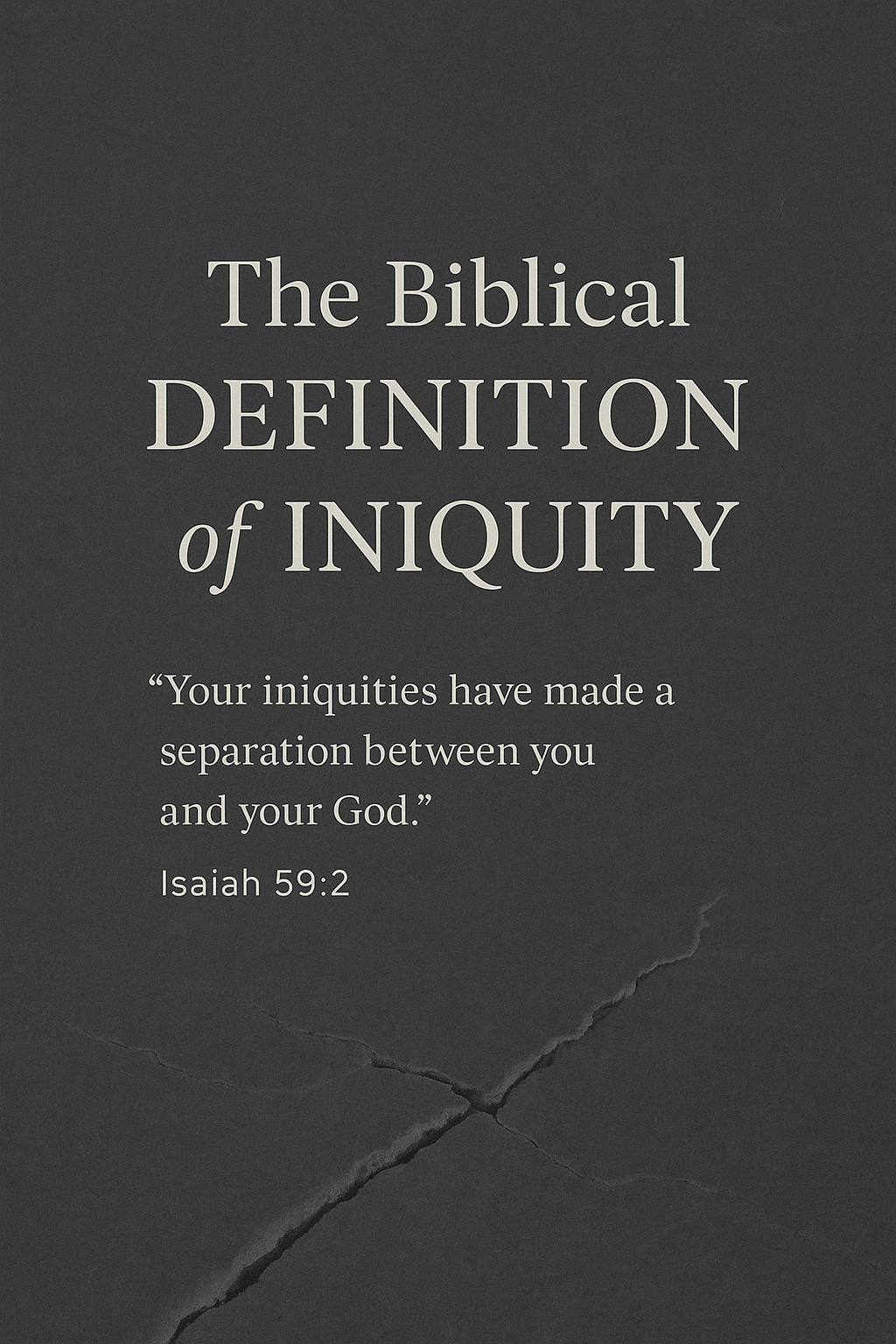Biblical Definition of Lust: What the Bible Says
The biblical definition of lust goes far beyond the modern understanding of sexual temptation, encompassing a deep, often destructive craving that can separate us from God’s purpose for our lives. In this comprehensive exploration, we’ll examine what the Bible says about lust, its origins, its consequences, and how believers can find freedom from its grip.
What Is Lust? A Biblical Perspective
The dictionary defines lust as “intense or unrestrained sexual craving” or “an overwhelming desire or craving”1. However, the Bible uses the term more broadly, describing it as a powerful longing for anything forbidden—sexual immorality, material possessions, power, or even revenge56. Lust is not merely a feeling; it’s a desire that, when left unchecked, leads to sin and spiritual separation from God36.
Key Biblical Terms
Old Testament:
Avah (אָוָה) – craving, desire
Chamad (חָמַד) – to covet, to desire (as in the Tenth Commandment)6
New Testament:
While desire itself is not inherently sinful (e.g., desiring good things or godly leadership, 1 Timothy 3:1), the Bible consistently portrays lust—especially when it fixates on what God forbids—as a corrupting force5.
Lust in the Bible: Key Passages
The Bible addresses lust in both direct commands and narrative examples. Here are some of the most significant passages:
Exodus 20:17:
“You shall not covet your neighbor’s house. You shall not covet your neighbor’s wife...”
Coveting here is closely tied to lust—a desire for what is not rightfully ours16.Proverbs 6:25:
“Do not lust in your heart after her beauty or let her captivate you with her eyes.”
This verse warns against internalizing desire, not just acting on it6.Matthew 5:27-28 (Jesus’ teaching):
“You have heard that it was said, ‘You shall not commit adultery.’ But I tell you that anyone who looks at a woman lustfully has already committed adultery with her in his heart.”
Jesus raises the standard, showing that lust is not just an outward act but an inward condition16.James 1:14-15:
“Each person is tempted when they are dragged away by their own evil desire and enticed. Then, after desire has conceived, it gives birth to sin; and sin, when it is full-grown, gives birth to death.”
This passage outlines the progression from desire (lust) to sin and ultimately to spiritual death6.1 Thessalonians 4:3-5:
“For this is the will of God, your sanctification: that you abstain from sexual immorality; that each one of you know how to control his own body in holiness and honor, not in the passion of lust like the Gentiles who do not know God.”
Paul contrasts holy living with the “passion of lust,” highlighting the difference between godly desire and sinful craving4.
The Nature of Lust: More Than Sexual Sin
While lust is often associated with sexual temptation, the Bible presents it as a broader issue of the heart. Lust is any desire that:
Seeks to possess what is forbidden
Puts self-gratification above God’s will
Leads to idolatry or the worship of created things over the Creator
As John Piper explains, “Lust is a sexual desire that dishonors its object and disregards God”4. But the principle applies to any craving that puts our desires above God’s commands.
Lust vs. Godly Desire
Not all desire is sinful. The Bible commends certain desires—such as the longing for righteousness (Matthew 5:6) or the desire to serve God (1 Timothy 3:1)5. Lust becomes sinful when:
We desire the wrong thing (e.g., another person’s spouse)
We desire a good thing in the wrong way or for the wrong reasons (e.g., craving wealth for selfish gain)5
Examples of Lust in the Bible
1. Adam and Eve (Genesis 3)
Eve’s temptation in the Garden was rooted in lust:
“When the woman saw that the fruit of the tree was good for food and pleasing to the eye, and also desirable for gaining wisdom, she took some and ate it...”
Her desire for what God had forbidden led to disobedience and the fall of humanity6.
2. David and Bathsheba (2 Samuel 11)
King David’s sin began with a lustful gaze. Instead of turning away, he acted on his desire, leading to adultery and murder. This story illustrates how unchecked lust can spiral into greater sin and devastating consequences6.
3. The Israelites in the Wilderness (Numbers 11:4)
The people “craved other food” and grumbled against God’s provision. Their lust for something different led to rebellion and judgment6.
Why Is Lust a Sin?
1. It Distorts God’s Design
God created desire, but lust twists it toward selfish ends. Sexual desire, for example, is meant for the covenant of marriage. Lust seeks pleasure without commitment, objectifying others and dishonoring God’s purpose45.
2. It Leads to Idolatry
Lust places our desires above God’s will, making an idol of pleasure, possessions, or power. Paul warns that greed and lust are forms of idolatry (Colossians 3:5)6.
3. It Destroys Relationships
Lust is inherently selfish. It seeks to possess, not to love or serve. This destroys trust, intimacy, and community—whether in marriage, friendships, or the church14.
4. It Separates Us from God
Unchecked lust leads to spiritual death (James 1:15). It hardens our hearts, making it difficult to hear God’s voice or respond to His Spirit6.
How to Overcome Lust: Biblical Strategies
1. Renew Your Mind
Paul urges believers to “be transformed by the renewing of your mind” (Romans 12:2). This means replacing lies and lustful thoughts with God’s truth.
2. Flee Temptation
“Flee from youthful lusts and pursue righteousness, faith, love, and peace...” (2 Timothy 2:22). Avoid situations, media, or relationships that trigger lust6.
3. Practice Accountability
Confess your struggles to trusted believers (James 5:16). Accountability helps break the secrecy that fuels lust.
4. Cultivate Holy Desires
Set your heart on things above (Colossians 3:1-5). Fill your mind with Scripture, prayer, and worship.
5. Remember the Gospel
Lust is powerful, but God’s grace is greater. Jesus forgives, cleanses, and empowers us to live in freedom (1 John 1:9; Romans 8:1-2).
Frequently Asked Questions
Is it a sin to be attracted to someone?
Attraction itself is not sinful. Lust begins when attraction turns into a consuming or covetous desire, especially for what is forbidden16.
Can Christians ever be free from lust?
While no one is perfect in this life, believers are called to pursue holiness and can experience increasing victory over lust through the Holy Spirit’s power14.
What if I’ve already failed?
The Bible promises forgiveness and restoration for those who confess and turn from sin (1 John 1:9). God’s grace is available to all who seek Him.
Conclusion
The biblical definition of lust is a powerful, self-centered craving for something God has forbidden—often sexual, but not exclusively so. Lust distorts desire, damages relationships, and separates us from God. Yet, through Christ, we can find forgiveness, healing, and the power to pursue holy desires.




















